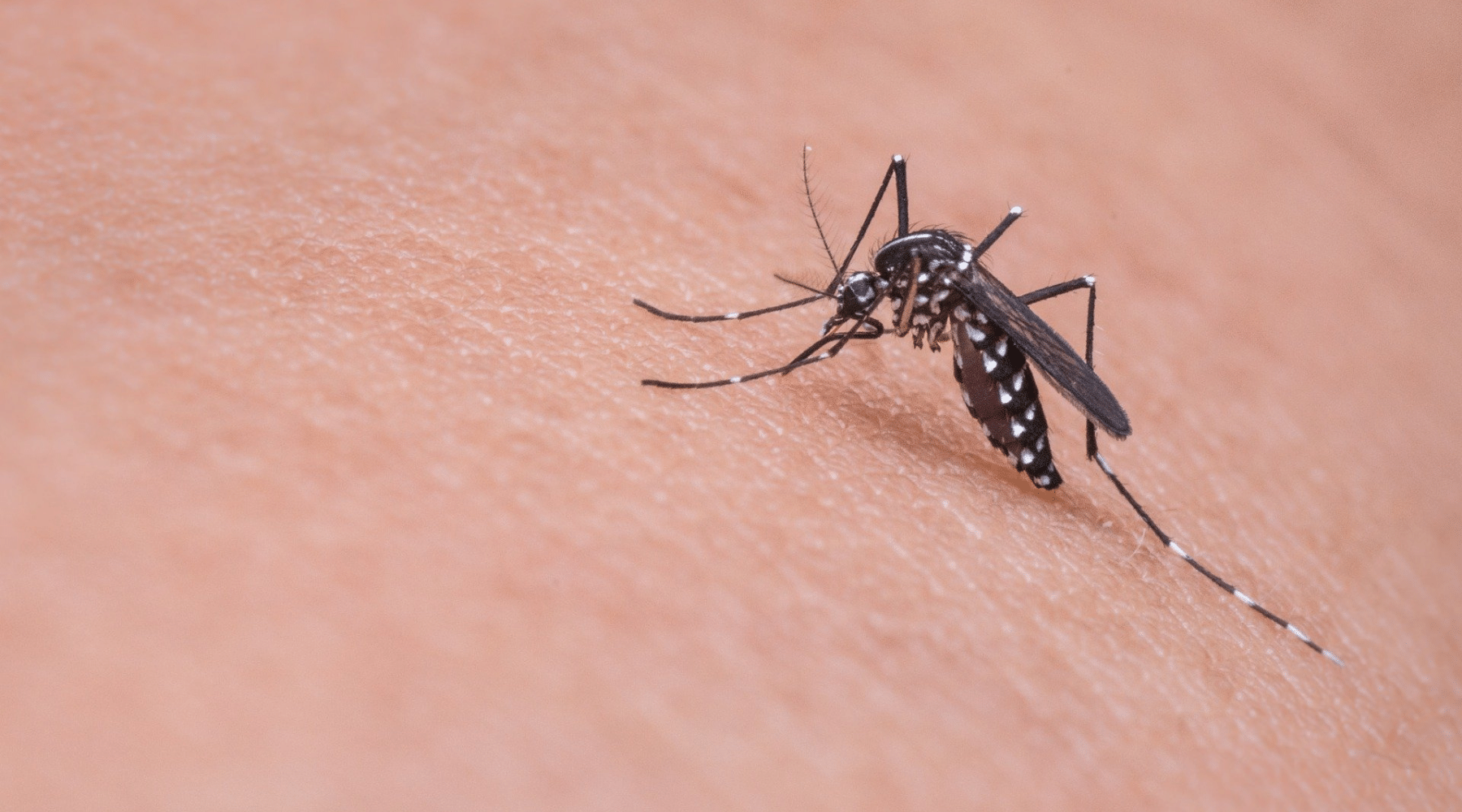Each week, OMRF Vice President of Research Dr. Rod McEver opens “Adam’s Journal” to answer a medical question from Adam Cohen, OMRF’s senior vice president & general counsel and interim president.
Adam’s Journal
When I spend time outdoors on summer evenings, I tend to draw mosquitoes like an ice cream truck does kids. While the same seems to hold true for my younger son, the bloodthirsty pests ignore my older son. What gives?
Dr. McEver Prescribes
Mosquitoes find some people more appetizing than others. Both nature (blood type) and nurture (exercise habits) can play a key role in who becomes a moveable feast.
Female mosquitoes feed on our blood to reproduce. They need proteins in our blood to help develop their eggs. To locate their next drink, the winged insects use a special organ that detects carbon dioxide.
Heavier individuals and pregnant women produce more CO2. So do people with high metabolisms, a byproduct of distance running and other endurance exercise.
Studies have likewise found that the bloodsuckers are attracted to human secretions such as lactic acid (which we expel via our sweat) and to people with higher body temperatures. Physical activity increases the buildup of lactic acid and heat in your body, so, again, as a runner, you may stand out to the insects.
Finally, research indicates that mosquitoes may have a taste for certain blood types. In a 2019 study published in the American Journal of Entomology, researchers found that the Aedes aegypti mosquito (a variety of the insect commonly found in Oklahoma) preferred Type O blood over other types.
Regardless of why mosquitoes treat you and your younger son like walking smorgasbords, opt for long sleeves and pants when temperatures allow and keep repellant with DEET handy. Mosquito bites not only make you itchy, but they can cause a variety of insect-borne diseases. Do what you can to avoid them.
–
Do you have a health query for Dr. McEver? Email contact@omrf.org and your question may be answered in a future column!



